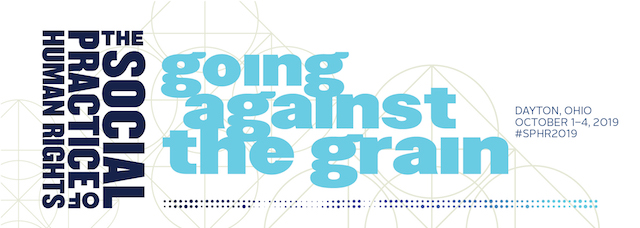Location
Economic Inequality and Climate Justice
Start Date
10-2-2019 2:00 PM
End Date
10-2-2019 3:30 PM
Keywords
Economic democracy, cooperative, human rights, community organizing, union, local initiatves
Abstract
A 2018 report from the Intergovernmental Panel on Climate Change (IPCC) concluded that in order to avoid a seemingly inevitable ecological collapse that would bring intense suffering especially on the most marginalized and excluded sectors; the world needs to develop “rapid, far-reaching and unprecedented changes in all aspects of society”. There are many local experiences which demonstrate the possibilities of achieving these needed changes. There are a number of community organizations and associations, social movements, and municipal efforts, among others, with creative visions on this front. In Jackson, Mississippi, for example, Cooperation Jackson strives to be a means to help push for sustainable community development, economic democracy and community ownership. This is done through developing a network of cooperatives based on interconnected worker cooperatives, a cooperative training center, cooperative banks and more. Additionally, Cooperation Jackson is an active member organizing for Jackson Human Rights City, looking to further entrench into the city’s policies, practices and culture a resolution passed in 2014 which established a Human Rights Charter and a Human Rights Commission in the city of Jackson, Mississippi.
The dire situation presented in the IPCC report alongside the inspiring local visions of movements for economic democracy, ecologically regenerative production, and community ownership over local resources, lead to a number of important questions. Can human rights catalyze the languages, practices and spaces needed for the excluded and marginalized to develop visions and mobilize examples of the “far-reaching” changes needed to avoid ecological collapse? How do human rights languages and practices enter into conversations over the democratic control over the means of production? How can these local experiences foment more conversations over economic and environmental democracy at the international level?
Author/Speaker Biographical Statement(s)
Curtis Kline is an international human rights professional who collaborates with local communities to advocate for the defense and promotion of their rights. By conducting research into social, cultural, and legal dynamics he has worked with communities in campaign design, coalition building and community organizing regarding the advocacy of human rights issues. In fall, 2019, Curtis started a Ph.D. program in Political Science at Colorado State University.
Included in
Civic and Community Engagement Commons, Comparative Politics Commons, Economic Theory Commons, Labor Economics Commons, Place and Environment Commons, Political Economy Commons, Political Theory Commons, Politics and Social Change Commons, Work, Economy and Organizations Commons
Human Rights and Economic Democracy: Reinvigorating the Human Rights Movement
Economic Inequality and Climate Justice
A 2018 report from the Intergovernmental Panel on Climate Change (IPCC) concluded that in order to avoid a seemingly inevitable ecological collapse that would bring intense suffering especially on the most marginalized and excluded sectors; the world needs to develop “rapid, far-reaching and unprecedented changes in all aspects of society”. There are many local experiences which demonstrate the possibilities of achieving these needed changes. There are a number of community organizations and associations, social movements, and municipal efforts, among others, with creative visions on this front. In Jackson, Mississippi, for example, Cooperation Jackson strives to be a means to help push for sustainable community development, economic democracy and community ownership. This is done through developing a network of cooperatives based on interconnected worker cooperatives, a cooperative training center, cooperative banks and more. Additionally, Cooperation Jackson is an active member organizing for Jackson Human Rights City, looking to further entrench into the city’s policies, practices and culture a resolution passed in 2014 which established a Human Rights Charter and a Human Rights Commission in the city of Jackson, Mississippi.
The dire situation presented in the IPCC report alongside the inspiring local visions of movements for economic democracy, ecologically regenerative production, and community ownership over local resources, lead to a number of important questions. Can human rights catalyze the languages, practices and spaces needed for the excluded and marginalized to develop visions and mobilize examples of the “far-reaching” changes needed to avoid ecological collapse? How do human rights languages and practices enter into conversations over the democratic control over the means of production? How can these local experiences foment more conversations over economic and environmental democracy at the international level?



